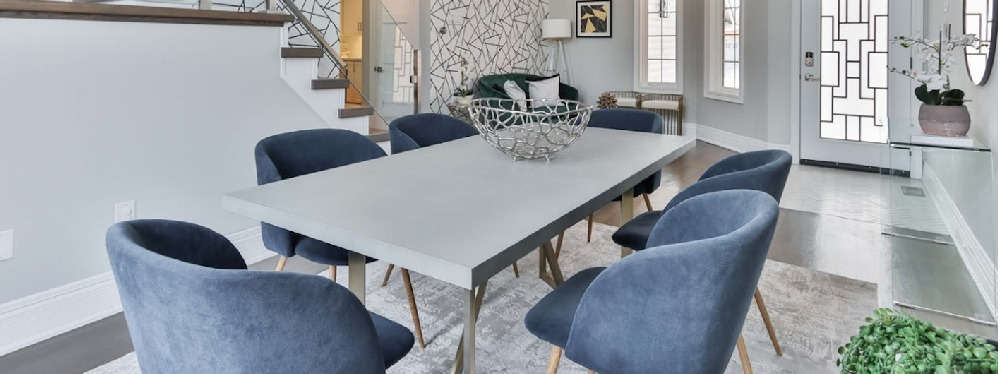India’s luxury real estate market is flourishing, with significant growth in cities like Mumbai, Delhi-NCR, Pune, and Hyderabad. In 2023, the luxury housing segment, defined by properties priced at ₹4 crore and above, saw a 75% year-on-year (YoY) surge in sales across key cities.
This demand and the simultaneous sale reflect India’s economic growth. For NRIs, the potential for property value appreciation, alongside the availability of advanced amenities and prime locations, makes luxury apartments a popular investment choice. Understanding the financial commitments and cost structure is essential to make decisions in this dynamic market.
Understanding Luxury Apartment Pricing
The cost of a luxury apartment depends on several factors. Based on property amenities, nearby location ranges can vary. Here is a simple breakdown of how costs can vary:
-
Location and Amenities
Luxury apartments in prime areas like Mumbai, Delhi, or Bengaluru are priced higher due to their proximity to business hubs, malls, and high-end infrastructure. For example, a 3 BHK luxury apartment in South Mumbai may cost ₹10 crores, while a similar apartment in a smaller city like Pune could cost ₹4-5 crores. Properties with exclusive amenities like swimming pools, gyms, or concierge services also ensure premium quality.
- Developer Reputation
Some top-level, reputed developers often demand a high price for their properties because of their established reputation, quality, and timely delivery.
Pro tip: Always check the developer’s track record before deciding.
-
Market Trends and Demand
The real estate market is dynamic. Based on economic conditions, government policies, and demand, prices can rise or fall. High-demand areas typically have a higher price, so the timing of your purchase can also matter.
Initial Costs When Buying a Luxury Apartment
When purchasing a luxury apartment, it’s important to know upfront costs in detail, including the down payment, booking amount, and additional charges. Here’s an estimated breakdown:
- Required Down Payment: The down payment for luxury apartments needs to be at least 20% of the total property value. For instance, if the apartment costs ₹5 crores, the initial payment needs to be ₹10,000,000. A higher down payment often results in better loan terms and reduces overall interest costs.
- Booking Amount: This is a smaller, non-refundable amount paid to book the apartment before signing a formal agreement. It acts as a commitment from the buyer. For luxury properties, booking amounts vary widely based on the developer and location.
- Total Cost Transparency: Luxury apartments often come with additional charges, such as Parking fees, Club memberships, and infrastructure development charges. These costs can add up to 5%-10% of the base price. Getting a detailed cost breakdown from the developer is essential before proceeding to buy a property.
Home Loan Considerations for NRIs
Many NRIs opt for home loans to finance their purchase. Here’s what you need to know:
-
Eligibility Criteria
Banks usually check some critical factors like your age, income, and residency status. NRIs must have a valid passport and a steady income from employment or business.
-
Documentation Required
Key documents include:
- Passport and visa copies.
- Employment proof or business documents.
- Bank account statements (NRE/NRO accounts).
-
Interest Rates and Loan Tenure
Interest rates for home loans in India typically range from 7% to 9%. Loan tenures can go up to 30 years, but NRIs may have shorter tenure options depending on their age and income stability.
Hidden Costs in Luxury Apartment Purchases
Some hidden costs may not be obvious, but they are essential. Some of them are described below.
-
Stamp Duty and Registration Fees
These government charges are a percentage of the property value and vary by state. For example, in Maharashtra, stamp duty is 5-7% of the property value. For a ₹5 crore property, this translates to ₹25-35 lakh.
-
Maintenance Charges and Society Fees
Luxury apartments often have high maintenance fees for amenities like swimming pools and gyms. These can range from ₹10 to ₹20 per square foot monthly. Sometimes, builders may also request an advance payment of 12-24 months.
-
Property Tax for NRIs
NRIs must pay property taxes in India, which depend on the location and size of the apartment. Local municipal authorities set these taxes, and it’s important to consider when you are calculating your monthly expenses.
Read Also: The Hidden Costs of Purchasing a Luxury Apartment: What You Need to Know.
Additional Financial Obligations
When buying a luxury apartment in India, it’s important to consider both the expected and hidden costs. Beyond the purchase price and hidden cost, there are several additional financial obligations to plan for:
- Home Insurance: Protects your property against any kind of damage, theft, or natural disasters like floods or earthquakes. Premiums vary based on the property’s value, but luxury homes can range between ₹10,000 to ₹1 lakh per year.
- Renovation and Furnishing Costs: Most of the time, luxury apartments come semi-furnished, so you must budget for additional costs like furniture and decoration. Renovating or furnishing a 3BHK apartment can cost anywhere between ₹10 lakh and ₹50 lakh, depending on the quality of materials and design preferences.
- Resale Value Considerations: While luxury properties tend to appreciate, market fluctuations can still impact their resale value. It’s always a good idea to consult real estate experts before purchasing, as they can guide you on potential appreciation based on location, demand, and overall market trends.
These costs are integral to the long-term financial planning of purchasing a luxury apartment, and understanding them will ensure a smooth and financially sound investment.
Tax Implications for NRIs
Owning property in India has tax implications, especially for the NRIs. Here is the explanation:
- Tax on Rental Income: If you rent out your property, a tax applies to your rental income in India. However, you can reduce the taxable income by claiming municipal taxes, maintenance, and home loan interest deductions. The rental income is subject to the same tax rates as for residents.
- Home Loan Deductions: For the first time, NRIs in India can claim tax benefits on home loans. Under Section 80C, NRIs can claim a deduction of up to ₹1.5 lakh annually on principal repayment. In comparison, Section 24(b) of the Indian Income Tax Act allows for a deduction of up to ₹2 lakh annually on the interest paid for a self-occupied property.
- Tax Treaties: India has Double Taxation Avoidance Agreements (DTAAs) with several countries to prevent NRIs from paying taxes twice on the same income. This allows them to claim tax credits in their country of residence for taxes paid in India.
Read Also: Ultimate Guide for NRIs Buying Property in India in 2024
Conclusion
Luxury apartments are significant decisions in terms of financial investment. When you are investing in real estate, it is important to understand the involved costs, from the initial price to hidden costs like stamp duty to ongoing expenses such as maintenance charges and property taxes. However, for NRIs, the process can be quite complex, considering home loans and tax implications.
When you’re ready to elevate your luxury real estate journey, Rustomjee is your trusted partner. Offering a range of premium properties tailored to your lifestyle and investment goals, Rustomjee invites you to explore its exclusive developments. Contact Rustomjee to discover how we can help turn your dream of owning a luxury apartment into reality.
FAQs
- Are there any restrictions on NRIs buying property in India?
NRIs can buy residential and commercial properties but cannot purchase agricultural land, plantation property, or farmhouses without special permission.
- Can NRIs repatriate the sale proceeds of my property?
Yes, NRIs can repatriate the sale proceeds of their property to their country of residence if all taxes are cleared. According to RBI guidelines, the repatriation must be done through an NRO or NRE account.
- Is GST applicable on luxury apartments?
Yes, GST is applicable and can vary based on the property type. A rate of 5% is applicable for under-construction luxury apartments. If the property is ready to move in, no GST is applicable.








